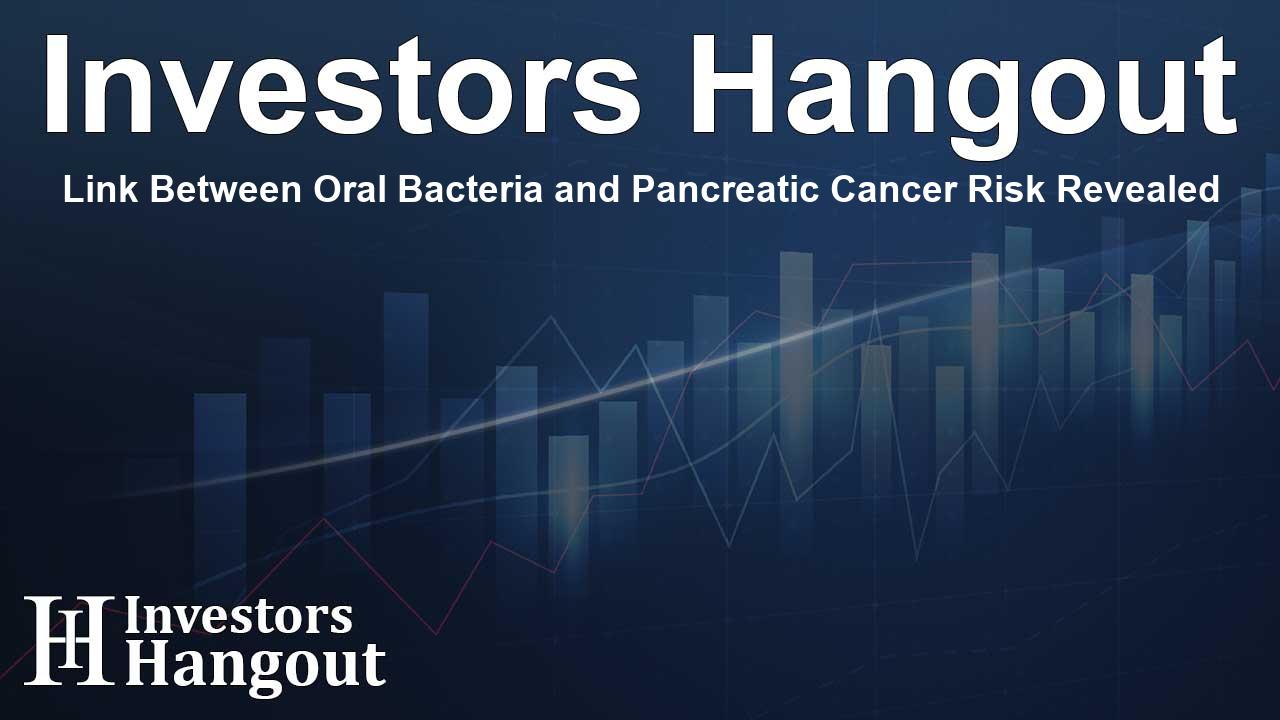Link Between Oral Bacteria and Pancreatic Cancer Risk Revealed

Link Between Oral Bacteria and Pancreatic Cancer Risk Revealed
The intricate relationship between oral health and overall wellbeing has garnered attention in recent research, notably highlighting a significant concern regarding pancreatic cancer. A comprehensive study led by NYU Langone Health has established a clear link between specific oral microbes and an increased risk of developing pancreatic cancer. The alarming finding suggests that certain bacteria and fungi in the oral cavity can amplify the risk by an astonishing 3.5 times.
Understanding the Microbial Connection
Experts have long posited that individuals with poor oral hygiene are more susceptible to serious health issues, including pancreatic cancer. Recent investigations have sought to uncover the mechanisms behind this correlation. It has been found that bacteria traveling through saliva can reach the pancreas, an organ crucial for digestion. Surprisingly, the precise species contributing to this risk were previously undefined.
The Study's Findings
Published in a leading medical journal, the latest analysis evaluated the genetic makeup of oral microbes collected from a significant cohort of 122,000 healthy volunteers. This pioneering study reveals the oral microbiome's potential role in pancreatic cancer, distinguishing it as a key player in understanding the disease.
Discovering the Microbial Profiles
The researchers identified a group of 27 microbial species associated with heightened cancer risk. Understanding these patterns is vital as they shed new light on the oral microbiome’s involvement in serious health conditions. The study not only identified individual microbes that alter cancer risk but also recognized that certain strains are linked to periodontal disease, which can contribute to further complications.
The Role of Candida
In a startling twist, the study also revealed that a type of yeast, known as Candida, was present in patients' pancreatic tumors. This finding marks the first instance of associating oral fungi with pancreatic cancer, emphasizing the need for an expanded view of the oral microbiome's influence on health. It's a crucial reminder that our mouth's ecosystem is not merely a secondary aspect of health but possibly a prominent factor in the development of serious diseases.
Implications for Cancer Screening
The innovative aspect of this study lies in its potential to alter the future approach to cancer screening. By profiling bacterial and fungal communities in the mouth, oncologists may develop new tools to flag individuals who should undergo pancreatic cancer screenings. Given the high mortality associated with this cancer type, early detection is vital.
Brushing for Health
As the researchers noted, maintaining good oral hygiene may not only help prevent gum disease but could also play a protective role against cancer. Regular brushing and flossing could become more than habits; they may transform into critical strategies in the fight against pancreatic cancer.
Paving the Way for Future Research
The study's authors express the importance of advancing research to establish clear cause-and-effect relationships between oral microbes and pancreatic cancer. The ongoing quest to understand oral health's implications will also extend to exploring whether oral viruses contribute to cancer development, further unraveling the mouth's role in health and disease.
Conclusion
The findings from this groundbreaking research are just the beginning of a new frontier in cancer risk assessment and prevention. By understanding the links between oral health and serious diseases, individuals may arm themselves with knowledge and tools to improve their health outcomes. It's a call to prioritize oral hygiene as a cornerstone of overall health.
Frequently Asked Questions
What is the main finding of the study regarding oral microbes?
The study reveals a significant link between certain oral bacteria and fungi, increasing the risk of pancreatic cancer by 3.5 times.
How was the research conducted?
The researchers analyzed saliva samples from 122,000 participants and examined their microbial DNA, comparing individuals who developed cancer to those who remained cancer-free.
What role does Candida play in this research?
Candida, a type of yeast, was found in patients' pancreatic tumors, marking a new connection between oral fungi and pancreatic cancer risk.
What implications do the findings have for cancer screening?
The study opens pathways for developing screening tools that assess individuals' microbial profiles to flag those at higher risk for pancreatic cancer.
What are suggested practices to potentially reduce risk?
Maintaining good oral hygiene practices, such as regular brushing and flossing, may not only prevent periodontal disease but also reduce cancer risk.
About The Author
Contact Dylan Bailey privately here. Or send an email with ATTN: Dylan Bailey as the subject to contact@investorshangout.com.
About Investors Hangout
Investors Hangout is a leading online stock forum for financial discussion and learning, offering a wide range of free tools and resources. It draws in traders of all levels, who exchange market knowledge, investigate trading tactics, and keep an eye on industry developments in real time. Featuring financial articles, stock message boards, quotes, charts, company profiles, and live news updates. Through cooperative learning and a wealth of informational resources, it helps users from novices creating their first portfolios to experts honing their techniques. Join Investors Hangout today: https://investorshangout.com/
The content of this article is based on factual, publicly available information and does not represent legal, financial, or investment advice. Investors Hangout does not offer financial advice, and the author is not a licensed financial advisor. Consult a qualified advisor before making any financial or investment decisions based on this article. This article should not be considered advice to purchase, sell, or hold any securities or other investments. If any of the material provided here is inaccurate, please contact us for corrections.
